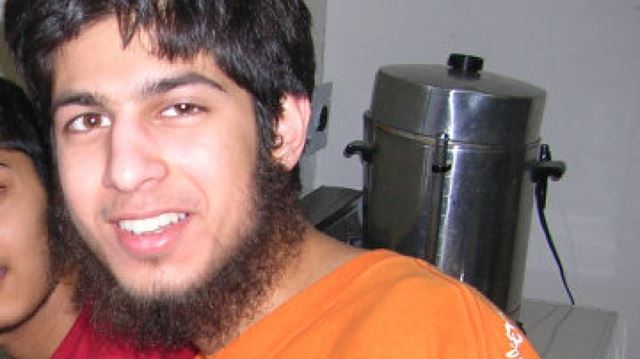A former member of a terrorist group that plotted truck bombings in Toronto to protest Canada’s military mission in Afghanistan is appealing a government decision to place him on the no-fly list.

Saad Gaya was part of the Toronto 18 terrorism conspiracy that was thwarted by police in 2006. He was released from prison and has become a lawyer who speaks against extremist violence.
He discovered he was on Canada’s no-fly list when he tried to board a flight to Montreal, where he was to attend a meeting at the Centre for the Prevention of Radicalization Leading to Violence.
After the government rejected his internal appeal last November, Gaya filed a case in the Federal Court in January seeking to be taken off the no-fly list, newly-released documents show.
Gaya also wants parts of the law that allows the government to ban Canadians from air travel over terrorism concerns to be declared “unconstitutional and of no force and effect.”

Get daily National news
The case and two others are the first legal challenges to the Secure Air Travel Act. On June 30, the court ruled on procedural aspects of the cases but they remain ongoing.
At age 18, Gaya was recruited by ringleader Zakaria Amara, who was planning to bomb the Toronto Stock Exchange, Canadian Security Intelligence Service Toronto office and a military base.
The conspirators thought the attacks would prompt Canada to pull its troops out of Afghanistan. The court called Gaya a “willing and active participant” in the bomb plot.

Gaya was arrested while unloading three tons of what he thought was ammonium nitrate from a rented truck into a storage facility in Newmarket, Ont.
He pleaded guilty to terrorism in 2009 and was sentenced to 12 years. On appeal, that was raised to 18 years. He was released on parole halfway through his sentence.
According to Gaya’s appeal of the no-fly list decision, he has turned himself around and is no longer a security threat.
“While incarcerated, Mr. Gaya undertook a well-documented journey of rehabilitation,” according to a document filed in court by his lawyer, Zachary Al-Khatib.
He graduated from university and “gained tremendous insight into his previous radicalization though counseling and by engaging with community organizations that work in countering violent extremism.”
He also volunteered with the RCMP and other national security agencies “to share his unique perspective and assist in countering potential extremist threats,” it said.
Stewart.Bell@globalnews.ca








Comments
Want to discuss? Please read our Commenting Policy first.